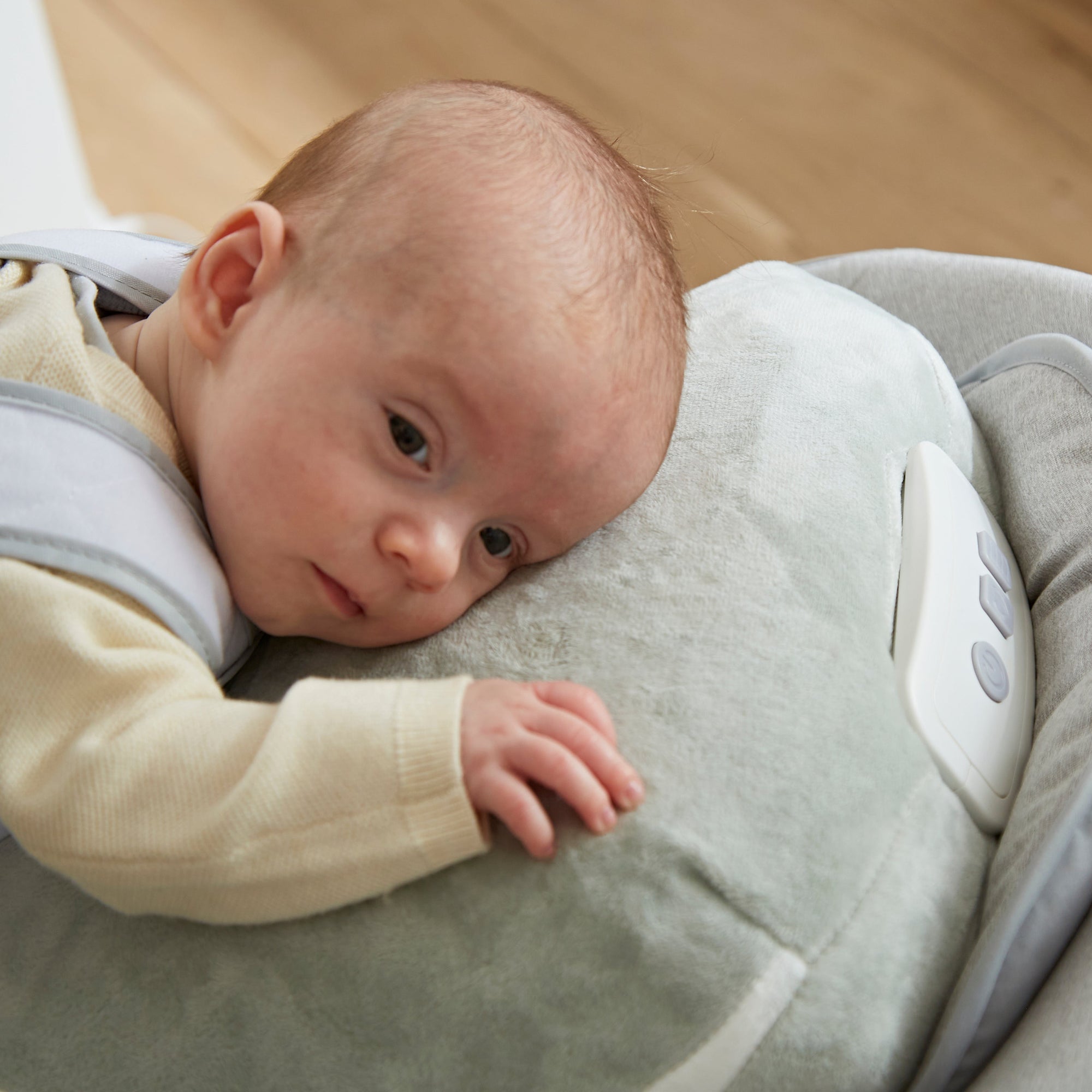It’s very common for babies to spit up after feeding. This is known as gastroesophageal reflux or GER. However, if your baby frequently vomits and experiences discomfort and difficulty feeding or weight loss then these symptoms may be caused by a more serious condition called GERD (gastroesophageal reflux disease).
Both GER and GERD cause upward movement of stomach content, including acid, into the esophagus and sometimes into or out of the mouth. Oftentimes, the vomiting is repetitive. The differences between the two conditions are marked by the severity and by the lasting effects.
What causes GERD in babies?
Most of the time, reflux in babies is due to an undeveloped gastrointestinal tract. This is perfectly normal as it takes time for every newborn to develop their esophagus muscles and for their digestive system to grow stronger. You’ll be relieved to know that most babies grow out of the condition by their first birthday.
What are the symptoms of GERD in babies?
Symptoms of newborn acid reflux usually first show up when your baby is between weeks two and four weeks old. They tend to peak around four months and begin to subside around seven months, around the time when your baby begins to sit upright and take more solid foods.
The most common symptoms of gastroesophageal reflux in babies are:
- Frequent or recurrent vomiting
- Frequent or persistent cough or wheezing
- Refusing to eat or difficulty eating (choking or gagging with feeding)
- Heartburn, gas, abdominal pain, or colicky behavior (frequent crying and fussiness) associated with feeding or immediately after
- Regurgitation and re-swallowing
Breastfeeding and GERD
GERD can affect both breastfed and bottle fed babies however it is usually less severe if you choose to breastfeed. This is because break milk is easier for newborns to digest than formula. If it’s possible, aim to breastfeed or pump and bottle-feed your baby breast milk. If you choose not to breastfeed, there are other actions you can take to help soothe GERD symptoms for your baby.
How to soothe baby acid reflux
GERD treatment and home remedies for GERD aim to help your baby feel better until they outgrow infant reflux, but they don't cure the condition. Try following these tips.

Feed frequently and avoid overfeeding
Instead of larger, less frequent feedings, offer smaller amounts of breast milk or formula more often. This can help combat newborn acid reflux.
Switch formulas and bottles
If your baby is bottle-fed, ask your doctor if you should switch to a different kind of formula. You can also try a slow-flow bottle teat to allow your baby to slow down and digest properly during feeding time.
Wind your baby during and after feeding
After feeding, spend a good amount of time thoroughly winding your baby and avoid active play (like bouncing your baby) for at least thirty minutes to help reduce symptoms of GERD. Another good technique is to take regular breaks during a feed to burp your baby, this is an effective way to avoid any painful trapped gas.
Hold your baby upright after feeding
Position your baby upright and hold them securely propped upright for 20 to 30 minutes after feeding. This will help with digestion and alleviate GERD symptoms.
Speak with your doctor
Your practitioner can provide some additional tactics to try, like thickening feeds or trying a different formula. When these other tactics don’t work, some medications can safely help reduce or neutralize stomach acids. Just keep in mind that they can occasionally cause side effects and should only be used with a doctor’s supervision in babies with GERD, not in babies with ordinary GER. You can also talk to your doctor about giving your child probiotics, which are available as drops for infants who are breastfeeding or as powder that mixes into baby’s bottle. If you’re formula-feeding, you can use a formula that already has probiotics mixed in, but again, check with your pediatrician first.
How can the Babocush Cushion help with GERD?
The Babocush cushion is especially designed with babies who suffer from acid reflux in mind. Giving your baby the tummy time needed to encourage neck control and muscle development, the babocush cushion can assist your baby in working their muscles and strengthening their digestive system. What’s more, the gentle heartbeat sounds and vibrations will soothe your baby when they are suffering from GERD symptoms. The adjustable straps mean that tiny newborns can be secured safely to the cushion, as well as bigger babies, so your baby can continue use throughout their first year.

Possible effects of acid reflux in infants
Choking
Choking — i.e. gagging — during feedings can be a sign of newborn acid reflux or GERD, since some of the contents of the stomach back up into the esophagus. If your baby seems to be choking during or after feedings, try the home treatments outlined above (particularly feeding your baby in an upright position and propping them up afterwards). If those strategies don’t help, talk to your doctor.
Nasal congestion
Nasal congestion can also be a symptom of infant GERD. Though experts aren’t sure exactly why the two are linked, stomach acids could reach the back of the nasal cavity in babies with GERD, causing inflammation and therefore stuffiness of the nasal passages.
Will my baby outgrow GERD?
Here’s the good news! Most babies outgrow reflux by age 1, with less than 5% continuing to have symptoms as toddlers. However, GERD can also occur in older children. In either case, the problem is usually manageable. If your baby is suffering with GERD, it can be a difficult time for both parents and baby. Try to rest assured that there is light at the end of the tunnel and this stage will come to pass.
Related blogs:


